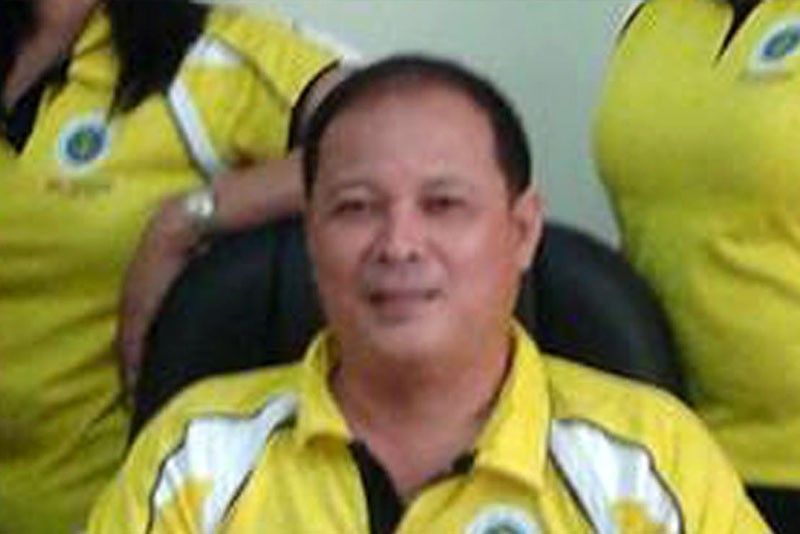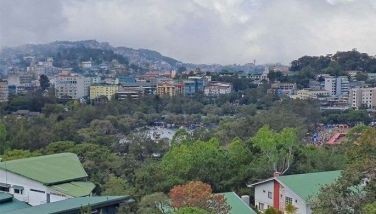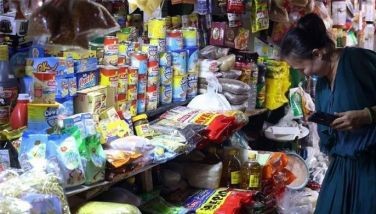Barangay polls heat up as bet killed in Capiz

ILOILO CITY, Philippines — A village chief running for reelection in Capiz became the latest casualty in the increasing poll-related violent incidents with less than a week before the campaign for the barangay elections officially kicks off.
Elvis Asis, 52, chairman of Barangay Lawa-an in Roxas City, was shot and killed by a lone gunman on Friday.
The Philippine National Police (PNP) said Asis was the latest in 11 cases of election-related violence nationwide since April 14.
The killing of Asis was the first in Western Visayas, officials said.
“As of now, we are treating the case as a suspected ERVI (election related violent incidence),” regional police spokesperson Chief Insp. Joem Malong said.
Asis was on a motorcycle driven by his nephew Joselito Casila when two people riding another motorcycle drove alongside and shot the victim at close range.
Asis died from a gunshot in the head while his nephew was hit in the right arm. They were on their way to attend a fiesta in Sitio Patag when they were attacked, police said.
Asis was killed a day after a candidate for barangay chairman and his father were killed in an ambush in Calbayog, Samar.
Christopher Braguela and his father Melanio were riding a motorcycle with Juanito Arneo when they were waylaid in Barangay Catabunan, Oquendo district on Thursday.
The Braguelas died on the scene while Arneo survived the attack.
Julio Aledanio of Barangay Himamaloto in Calbayog and Jeffry Cajuban of San Francisco, Gandara were gunned down two weeks ago.
PNP spokesman Chief Supt. John Bulalacao said the 11 recorded cases of election-related violence involved barangay officials as either the perpetrators or victims.
“Ten were shooting incidents while one was stabbing,” Bulalacao said without elaborating.
The Western Visayas regional police added two incidents were recorded in Bacolod City and another in Iloilo province.
Capiz police director Senior Supt. Samuel Nacion, however, dismissed the possibility that Asis was killed because of local politics.
Nacion refused to reveal what could have motivated the killing of Asis.
“The possibility is slim that it’s due to politics,” he said.
Even Asis’ sibling claimed the victim had intimated about a problem but he refused to reveal it.
Sources, however, revealed Asis was involved in an illegal gambling operation in Roxas City.
Asis was allegedly running a bookies operation with someone financing the illicit activity.
When the Small Town Lottery (STL) came into operation, Asis was offered to join. This apparently gained the ire of his financier. It was then that he began receiving threats, sources said.
Roxas City Police chief Supt. Dante Tayco formed an investigation team to probe Asis’ killing.
“We will have yet to assess if there’s a need to create a special investigation task group at the provincial level,” he said.
The hot spots
The Commission on Elections (Comelec) said the PNP has yet to verify the so-called election hotspots in the run up for the barangay and Sangguniang Kabataan (SK) elections on May 14.
Comelec spokesman James Jimenez said they will adopt a color coding system to identify the hot spot areas.
Jimenez said this was agreed upon during a command conference with representatives from the PNP and the Armed Forces of the Philippines.
“We’ll be having a calibrated categorization system – using the colors green, yellow, orange and red – to identify hotspots. It will be more specific about the extent of disturbances and the chances of violence erupting,” he said.
Jimenez earlier stressed the current list of suspected hot spots are tentative at the moment.
He said the Comelec is waiting for the official report from the PNP and the AFP over the areas of election concern.
In the past, the Comelec was branding areas with security concerns only into “areas of concern” and “areas of immediate concern.”
Jimenez said they find such a system is not descriptive in showing the real situation in an area. He added the Comelec decided to adopt certain colors to show the situation in a particular area.
“But I can give you a general idea what these colors signify. Green means no problem or no cause for concern. It is expected that majority of the country will be green,” he told reporters yesterday.
Yellow means the area has “its fair share of political unrest,” while orange indicates the presence of armed groups and persistent opposition to the government. Red represents the critical areas, including the villages supposedly under the influence or control of the communist New People’s Army (NPA) rebels.
A ranking administration lawmaker, however, called on the Comelec to require all candidates to undergo voluntary drug test.
“Aspirants may submit to a voluntary drug test at any Department of Health-accredited drug testing facility,” Surigao del Norte Rep. Robert Ace Barbers said.
Barbers made the appeal after the Comelec said it could not require candidates to submit to a drug test.
He said the Department of the Interior and Local Government (DILG) could ask the candidates to sign covenants to be displayed in their respective barangay offices indicating they condemn illegal drugs and are not being supported by any drug personality. “Those who will reject or refuse to undergo voluntary drug testing would all be subject to suspicions for alleged involvement in illegal drugs,” Barbers said.
He stressed the barangay is considered the smallest local government unit and the battle against drug abuse and trafficking should start from there. Barbers noted President Duterte has twice called for the postponement of the barangay elections – Oct. 31, 2016 and Oct. 23, 2017 – for the reason that 40 percent of villages had been infected by the rampant drug trade.
“The President is aware that a number of barangay officials are involved in illegal drug activities or are into substance abuse themselves,” he said.
Barbers said winners in the May 14 elections “would be receiving taxpayers’ money and they should all come clean, subject themselves to public scrutiny that they are not into illegal drugs.”
He urged voters not to elect candidates suspected of involvement in illegal drugs.
This developed as the DILG said they are set to file administrative complaints against at least 70 barangay officials for their failure to set up Barangay Anti-Drug Abuse Councils (BADACs) in their respective areas.
DILG Undersecretary for barangay affairs Martin Diño said they will file the cases sometime next week before the Office of the Ombudsman.
After filing the cases, Diño said they will reveal in public the names of the local officials who failed to organize BADACs, which he described as an important component in the government’s war on illegal drugs.
The barangay officials only have themselves to blame for not fulfilling their duties, Diño said.
“They are hardheaded. We warned them already,” he said.
Barangay officials are mandated to establish their respective BADACs under the rules and regulations of the Dangerous Drugs Board.
Diño did not give a specific figure but he said majority of the officials in the list are village chiefs. Most are also from Metro Manila, he added.
The list is different from the list set to be released by the Philippine Drug Enforcement Agency (PDEA) on Monday which contains names of barangay officials with suspected links to illegal drugs.
The absence of a BADAC in a barangay is evident if there are frequent arrests of suspected drug offenders in a particular area, according to Diño.
“The BADAC is a weapon of the barangay against illegal drug pushers, dependents and criminals,” he said.
Diño added barangay executives have no reason not to put up these BADACs as they are funded by the national government.
Diño urged the public not to vote for “incompetent” candidates who refuse to do their jobs as local officials in the upcoming barangay and SK elections.
“Please choose barangay captains, councilors and SK (officials) who will give genuine public service,” he said. – With Emmanuel Tupas, Shiela Crisostomo, Jess Diaz
- Latest
- Trending



























